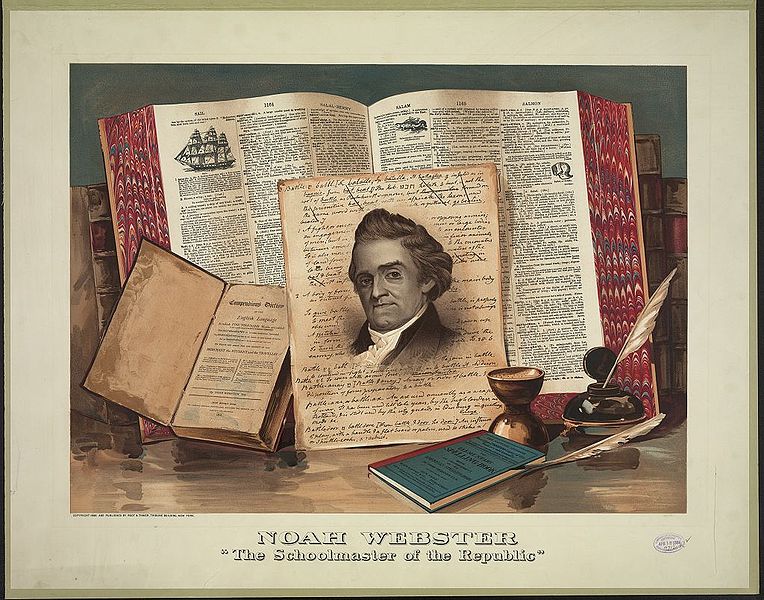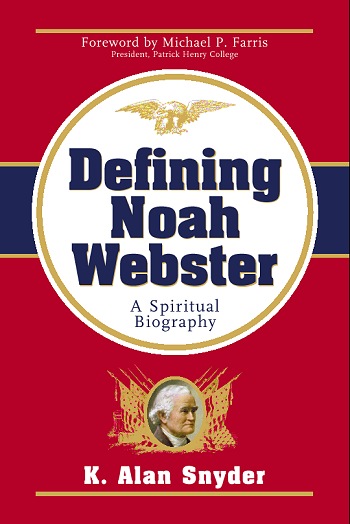The name “Webster” sounds familiar to most people. They think for a minute and then say, “Oh, yeah, he’s the dictionary guy, right?” Right.

But he’s more than that. Noah Webster is a prime example of someone who exhibits the character trait of diligence. A native of Connecticut and descendant of Pilgrim governor William Bradford, Webster was raised in the Congregational church, graduated from Yale, and even was awarded a master’s degree—unusual for the time.
In 1783, he got the nation’s attention with his first book, which is now called Webster’s Blue-Back Speller. It sold millions over the next century. It went with the pioneers westward, along with the Bible, teaching new generations how to read and spell. It was Webster who created an American spelling that broke from the English tradition: music instead of musick; color rather than colour.
Webster’s Speller, along with other educational books throughout his life, earned him the title “Father of Early American Education.” His crowning achievement, though, was his monumental 1828 dictionary, the first full-fledged dictionary to be published in America. It was a production that he worked on single-handedly for approximately 20 years. When it was completed, it quickly became the standard for America.
More than that, however, Webster’s dictionary revealed his Christian faith. Although raised in the church, Christianity, for him, had been primarily an external ritual. But at age 50, during a revival in New Haven, he submitted his life to God. This conversion experience gave a new impetus to all his work from that point on. The dictionary is more than a listing of word definitions. It’s actually pretty fascinating to look at it today because many of the definitions use Scripture verses as examples of how the words should be understood, and some of the definitions include commentaries from the author that provide a Christian context. Such a thing would be unimaginable now.

Webster’s memory has been eclipsed in educational circles by the likes of Horace Mann and John Dewey, both of whom departed from the Christian worldview in significant ways. This neglect needs to be rectified.
That’s one reason why I made Webster the subject of my doctoral dissertation. It was eventually published as Defining Noah Webster: A Spiritual Biography. It traces the shift in his thinking and his life as he eventually submitted his life to God. If you’re interested, you can purchase it on Amazon.
Let’s not forget America’s early Christian leaders.
